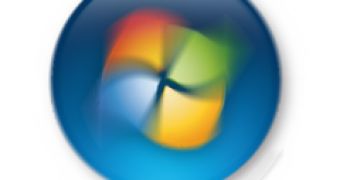Simultaneously with the commercial availability of Microsoft's latest operating system, reports related to Windows Vista were downgraded a level and became simply less news worthy. And all the attention tended to shift to the next version of Windows. In this context, there have been a lot of code-names circulated by various speculations but Windows Fiji and Windows Vienna, 7, Seven are the ones that survived, pointing to forthcoming releases of Windows.
For a while, Windows Fiji was synonymous with Windows Vista Service Pack 1 and Windows Vienna with the successor of Windows Vista respectively. But then, Charlie Owen, a product manager on the Media Center team, brought the first clarification to the code-name conundrum by pointing out that Windows Fiji is in fact the next edition of Windows Media Center and not the first service pack for Vista.
Following this, Microsoft revealed the existence of Windows Seven, burying the Windows Vienna codename, as the operating system that will take the place of Windows Vista. Concomitantly, Microsoft also announced the first rule of Windows Seven: "We do not talk about Windows Seven!" And the Redmond Company has imposed an all out Windows omerta.
But a few days back, Owen provided what seemed to be a timeframe for the release of Windows Fiji, a stand-alone out of band version of Windows Media Center. The fact of the matter is that Microsoft has been releasing one edition of Windows Media Center per year. Freestyle | 2002, Harmony | 2003, Symphony | 2004, Emerald | 2005, and Diamond | 2006 which is the edition included in Windows Vista Ultimate.
Judging by this, it has been easy to speculate that Windows Fiji will be released either in 2007 or in 2008, and therefore, before Windows Seven. However, after diverging from Microsoft's absurd Windows vNext Omerta, Owen took down the blog post that suggested the timeframe schedule for Windows Fiji and published a Mea Culpa.
"I made a pretty bad mistake the other day with a mailbag post while trying to reach out to the Windows Media Center online community of grass root supporters -- those early adopters who constantly (and rightfully) push us to deliver more value. I took some information which was already public knowledge and connected dots which -- honestly -- weren't there to connect," Owen explained. "It was a mistake on my part to infer any sort of timeframe schedule going forward. Doing so set the wrong expectations for my readers and opened up a can of speculation and question worms which were way off base. Above all, I pride myself on being a source you can trust -- and the other day I let you down -- I'll try not to do that again."

 14 DAY TRIAL //
14 DAY TRIAL //